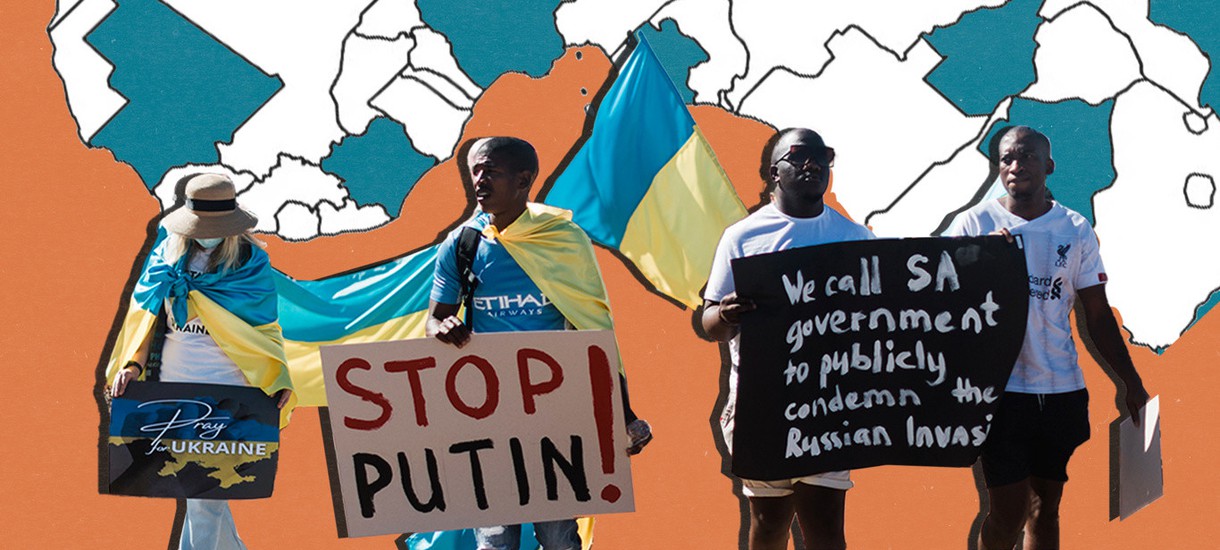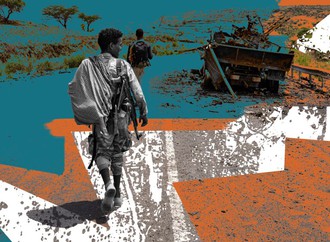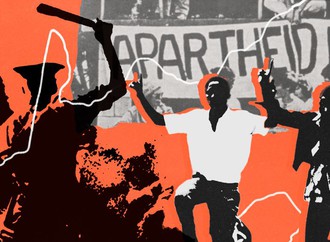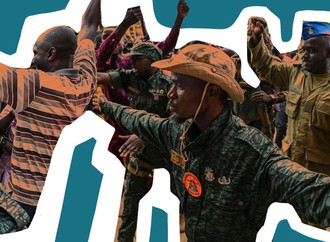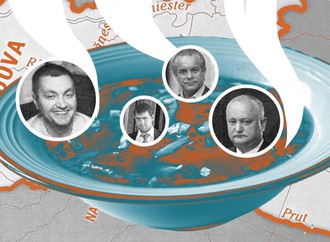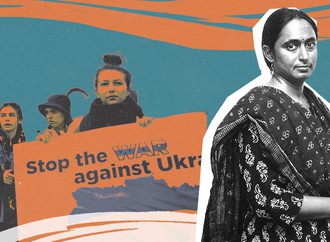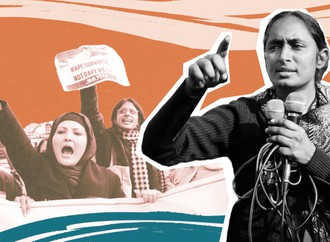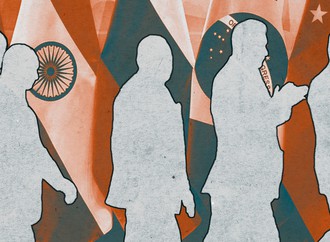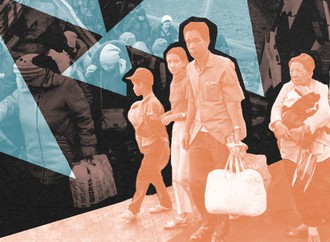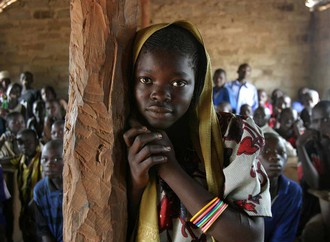This article is based on the left-wing activists' conference materials organized by the Global and European Networks of Solidarity with Ukraine (ENSU) in Africa. These activists represent various grassroots initiatives, organizations, and parties. They talk about the situation on the African continent, solidarity, problems in the region, and how the Russian-Ukrainian war affected them.
The article was written with reference to the reports of Namibia with Ukraine association head Anastasia Sheremet, left-wing economist professor Patrick Bond, eco- and social activist Desmond D'Sa, and Sudanese human rights defender Ayman Seifeldin. All the authors actively support Ukraine, organize events, actions, and solidarity campaigns, and oppose Russian imperialism in Africa.
In his essay, Michael Karajis writes about the "ambivalent sub-imperialist belt" – an axis of countries whose elites are connected to Russia and directly oppose Ukraine, supporting the so-called policy of "neutrality". This also includes countries that, despite voting for Ukraine's support at the UN, try to avoid the problem, and emphasize the importance of relations with Moscow, the danger of sanctions, and "escalation". Karajis clarifies the complex situation regarding the Global South, and in particular, the African continent, emphasizing an extremely important detail – the position of the elites is not identical to the position of the people of Africa.
Indeed, African activists join actions of solidarity with the Ukrainian resistance and talk about the real situation. For example, they draw parallels between the African countries' liberation struggle against the colonizers and Ukrainian society's resistance to the Russian invasion. The African continent’s context is complex and dynamic. In this material, guided by the local leftist, we propose to deal with it.
Sudan. The role of Russian imperialism
Since April 2023, in Sudan, clashes have been taking place between irregular troops (the Rapid Support Forces, created on the basis of Janjaweed units) and the Republic’s army – the two forces that actively carried out a genocidal policy and neglected human rights in the country. Now, in direct confrontation, they are struggling for power. Interestingly, both sides rely on Russia as a strategic partner and ally.
In 2017, Sudanese President Omar al-Bashir, who was issued an arrest warrant by the International Criminal Court for genocide in the Darfur region, visited Moscow. There, he signed several agreements expanding Russian influence in the region, including deals on gold mining with Russian companies and access of Russian troops to the Red Sea. The Sudanese leader told Putin that his country could help Russia develop contacts with other African states. "Sudan could become a key to Africa for Russia," he said in remarks released by the Kremlin.
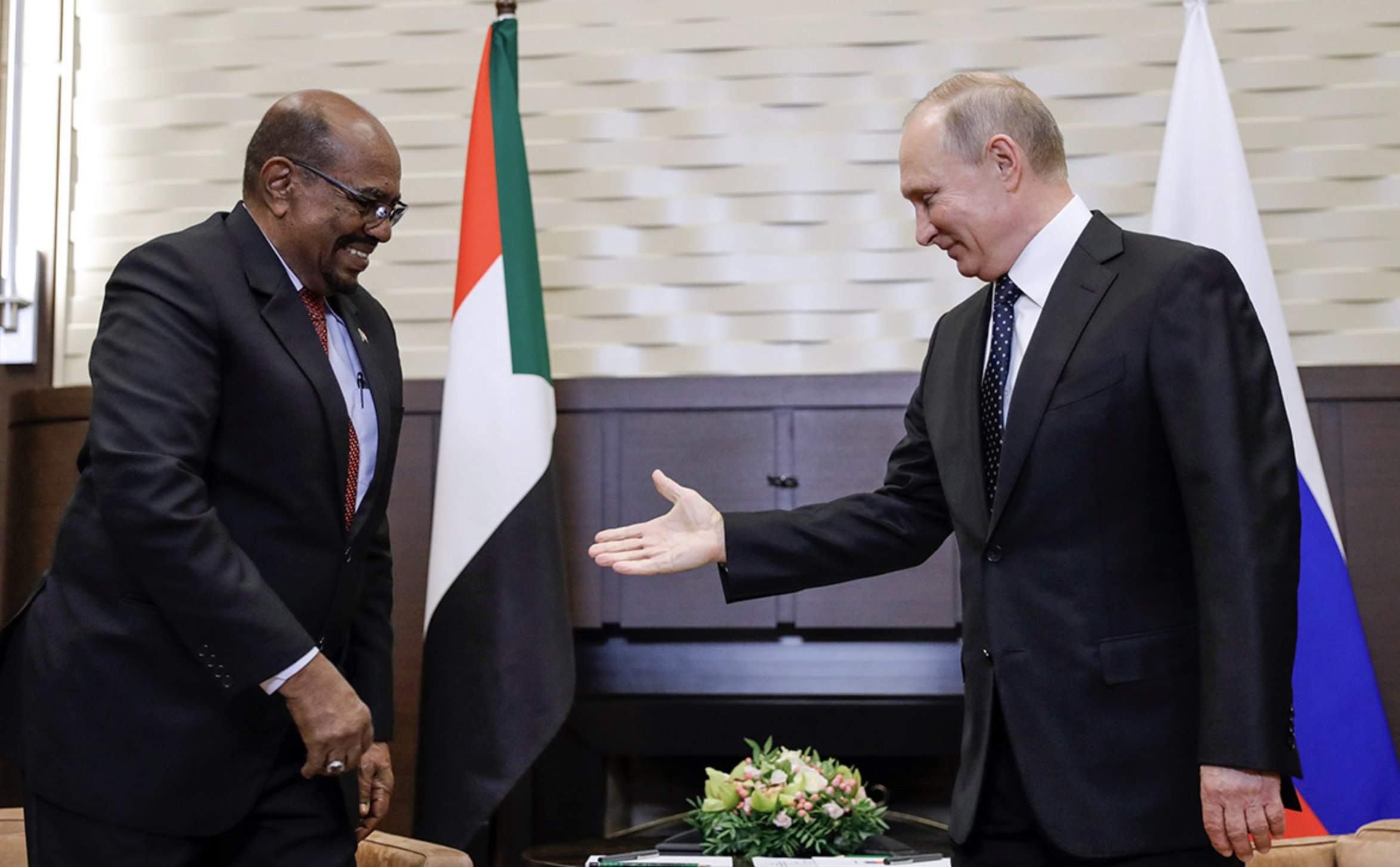
Sudanese President Omar al-Bashir at a meeting with Vladimir Putin, 2017. Photo: TASS
As the Sudanese human rights defender Ayman Seifeldin emphasizes, this position does not at all represent the people of Sudan, whom the government continues to repress, putting down the protests organized by democratic forces and trade unions. Ousted during the Sudanese revolution, dictator al-Bashir was replaced by a subsequent military junta, that staged another coup in order to prevent a civilian government from taking power. Under these conditions, another military group came against the junta – the Rapid Support Forces militia. One of its leaders was visiting Moscow when Russia’s full-scale invasion of Ukraine started. Not surprisingly, Russia maintains good relations with both military cliques, but simultaneously uses Wagner mercenary units to trade arms with militias and export Sudanese gold through Syria. Afterward, this money might be used to finance the war against Ukraine.
According to CNN, the amount of gold exported by Wagner units can reach up to 90% of the entire Sudan production. The Wagner group used Sudan to spread its influence on other African countries, emphasizing Seifeldin. In her opinion, the Russian mercenaries’ actions actually remind her of 19th-century colonialism. It is suppression, destabilization, and resource extraction in the most brutal way. Under such circumstances, the Sudanese revolution activists oppose both juntas and the imperialism that exploits and destroys their state. They need the whole world’s solidarity to stop both mass repressions and massacres by the army and militia, as well as the Russian imperial intervention.
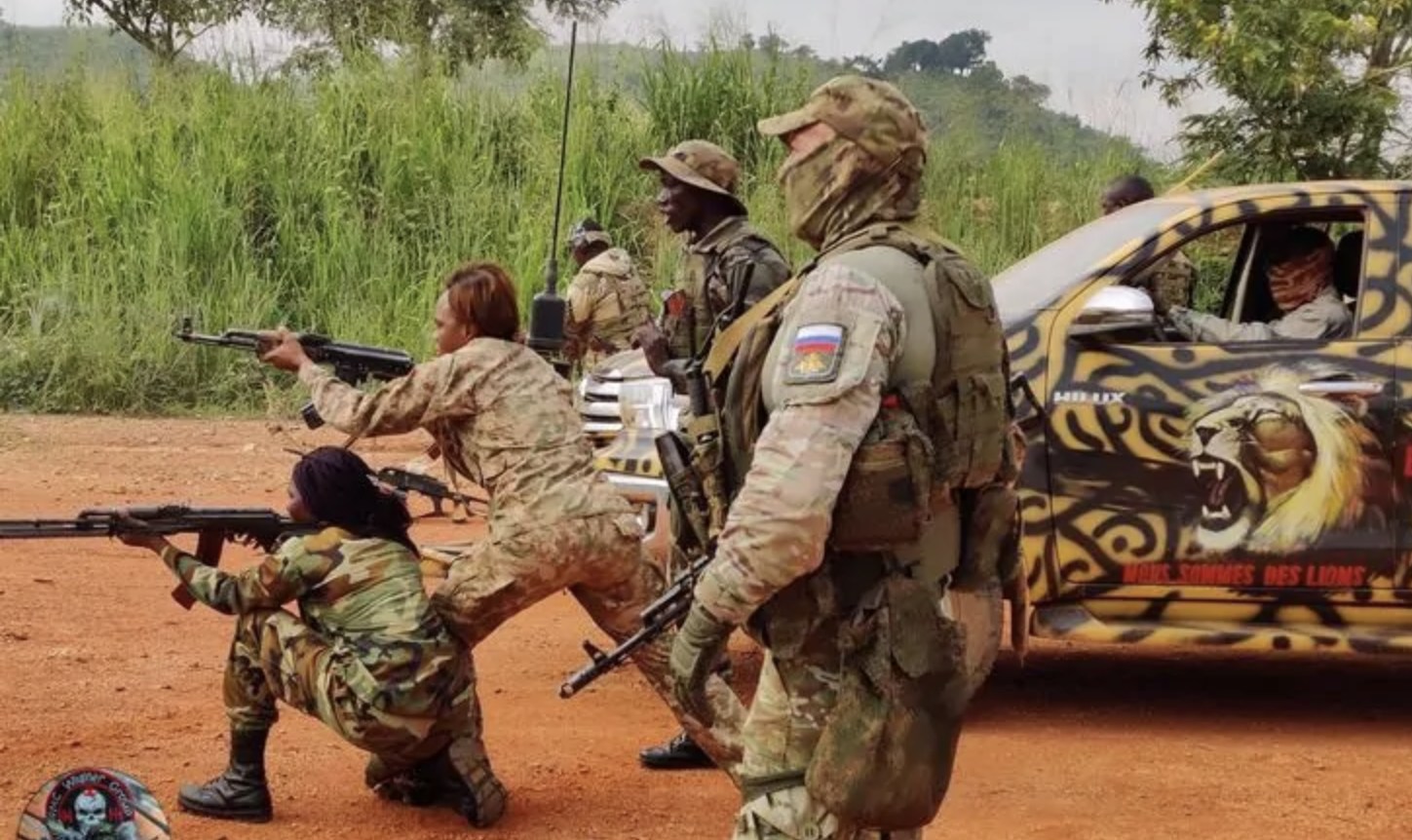
Russian Wagner Group instructors train local military personnel in the Central African Republic. Photo: Telegram channel Wagner's Orchestra
Namibia. What forces oppose solidarity with Ukraine?
Since independence, the South West African People's Organization (SWAPO) has been in power in Namibia. Representing the people's hopes for liberation and socialism, this force was at the head of their struggle against and resistance to apartheid at the time when (until 1990) the country was occupied by the racist regime of the Republic of South Africa. The national liberation movement party, which eclectically combined the ideas of nationalism, Marxism-Leninism, and social democracy, has now become an authoritarian-populist organization without a clear ideology (apart from a certain form of African nationalism). As Anastasia Sheremet noted, the fundamental structures developed in close cooperation with North Korean architects are symbolic of this kind of Namibian nationalism the party is currently guided by.
SWAPO's policy towards Ukraine is a “neutrality” policy enshrined in Article 96 of the Republic's Constitution. However, the party position can actually be called a “pro-Russian” neutrality position, which goes against the state’s proactive and democratic neutrality concept. For example, active neutrality based on decolonial principles was expressed by Namibia during a vote at the UN in 2020: “As a nation that has experienced the impact of international solidarity during the dark days of our struggle for independence, we wish to express our unwavering support for the right to self-determination and freedom of the peoples of Palestine and Western Sahara". The Namibian ruling party's “neutrality” regarding Ukraine is strikingly different. As the speaker Anastasiya Sheremet (a Ukrainian who has lived in Namibia for years) emphasizes, Ukraine is now fighting for its independence, against imperialism and colonialism. This is exactly what the popular movements in Namibia were fighting for.
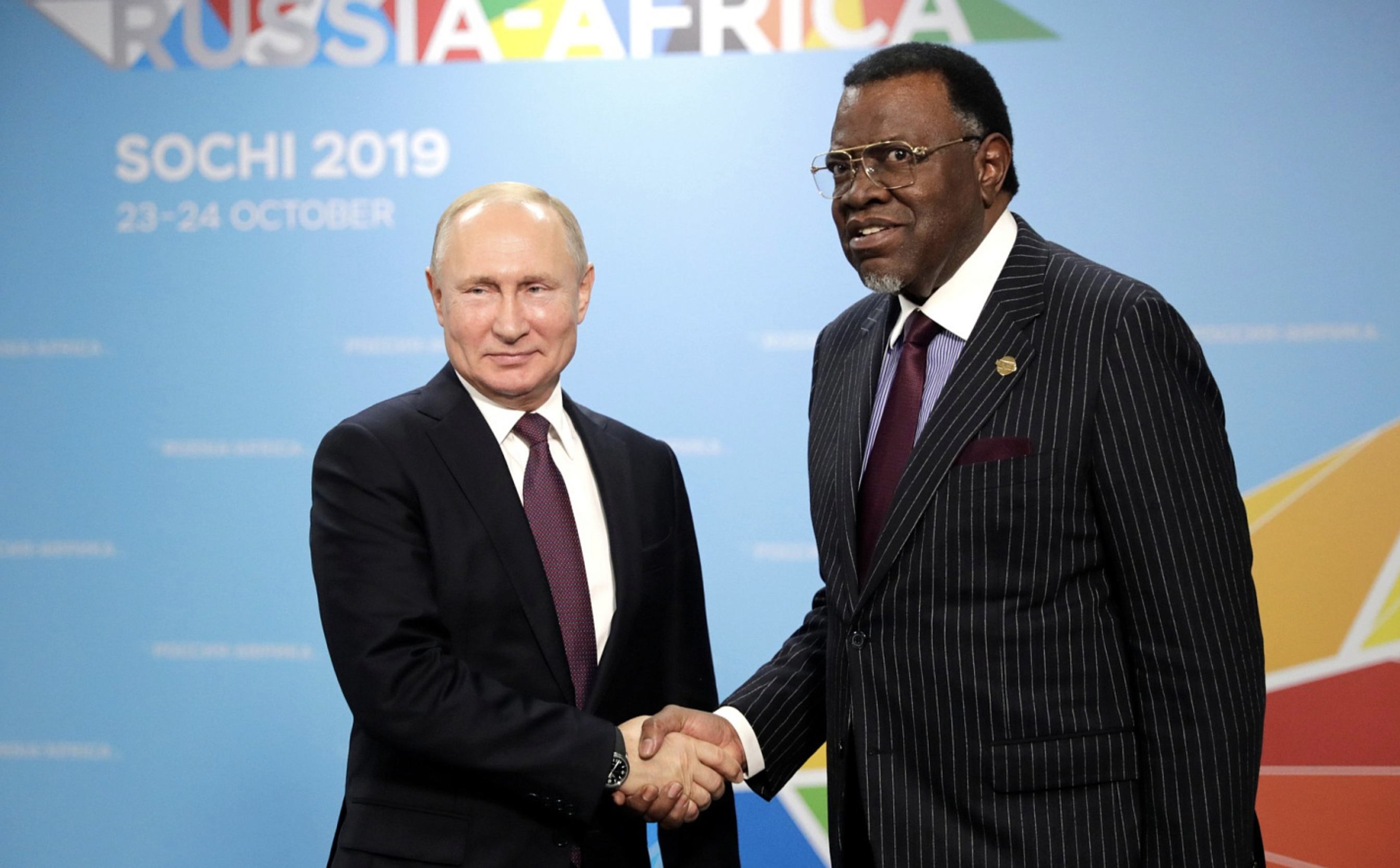
Namibia President Hage Gottfried Geingob meeting with Vladimir Putin at the Russia-Africa Economic Forum, 2019. Photo: TASS
But what is the reason for such different “neutralities” of Namibia’s ruling elite? The country's president emphasizes that Russia played a key role in Namibia's independence: “I always say, whoever participated in the liberation struggle, wherever we fought, the Soviet Union, the Russian people were there to support us one way or another.” So, the abovementioned difference is particularly rooted in nostalgia for the Soviet Union, although the modern Russian government policy in Africa is not based on supporting (albeit for its own interests) popular movements, but on brutal exploitation and extractivism. However, to understand the position of the Namibian government towards Ukraine, it is worth mentioning trade ties with Russia, cooperation with Rosatom, engagement in gas and diamonds production, and building cultural ties, which are used to strengthen the pro-Russian faction in SWAPO. As Anastasia Sheremet underscores, the Russian embassy is actively negotiating with Namibia for further economic cooperation, in particular, regarding the grain trade, part of which Russia stole from Ukraine.
There are different opinions on this war among the Namibian population. In general, support for Ukraine is higher among Namibian Germans and young people tired of permanent SWAPO rule. At the same time, the topic of the Russian invasion of Ukraine is partially taboo. According to Anastasia Sheremet, the majority of the country's population takes an apolitical position regarding the war, although there has been some progress.
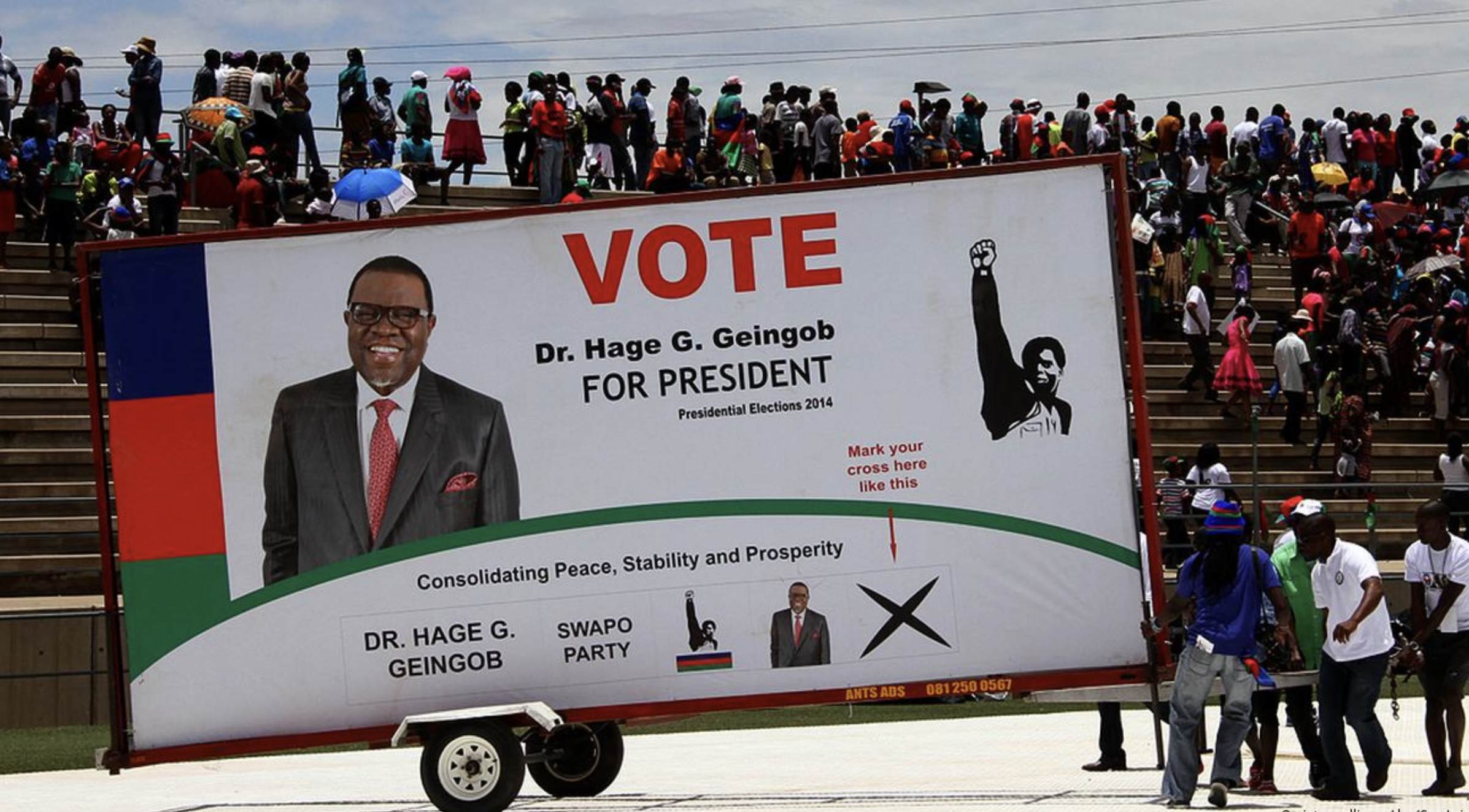
Hage Geingob election campaign, 2019. Photo: picture-alliance/dpa/Gao Lei
The Republic of South Africa. The elites’ connection with Russia and the pro-Ukrainian leftist position
The Republic of South Africa has strong ties with Russia: South Africa is the most economically developed country on the continent and one of the BRICS members — the economic union of Brazil, Russia, India, China, and South Africa. In August, the organization’s summit will be held in South Africa and Putin is supposed to come there. At the moment, it is not clear in what way this visit will take place. The problem is that South Africa is one of the signatory countries of the International Criminal Court Rome Statute. Under international obligations, South Africa must arrest Putin if on its territory. However, local activists have doubts that the ruling party, the ANC, will dare to take such a step. In order to hold this meeting, some party members even suggested canceling the country’s status as a Rome Statute signatory. On May 30th, the state leadership announced granting diplomatic immunity to all summit participants. ‘People are thinking about how to arrest Putin if he dares to set foot on the territory of South Africa. We will certainly challenge him,’ says left-wing activist Desmond D'Ca, laureate of the most prestigious Goldman Environmental Prize and co-organizer of protests against the Russian invasion.
So why is the South African government inclined to violate its international obligations in case Putin visits the BRICS summit? Currently, South Africa is a partner of the Russian Federation, an opponent of international sanctions against Russia, and, according to the American ambassador, exports weapons to Russia used against Ukraine. Although the export situation has not yet been confirmed, it is clear that South Africa's ruling party, the African National Congress, maintains close relations with Russia. Invited by United Russia[1], the ANC representatives have recently participated in a four-day diplomatic mission to Russia. South Africa has also received sanctioned Russian cargo planes delivering weapons. The country is currently closely connected with Russian oligarchs: the ANC was openly financed by a mining company owned by a sanctioned Russian oligarch Viktor Vekselberg. In mid-May 2023, a South African military delegation visited Russia. According to Patrick Bond, an economist and left-wing activist from South Africa (Spilne published a translation of his article on the trends of sub-imperialism in the BRICS countries), military ties between South Africa and Russia are strengthening, along with the populist ‘anti-Western’ rhetoric of the ANC’s dominant wing. The latter gets its support from the local Communist Party and the largest metallurgy workers’ trade union.
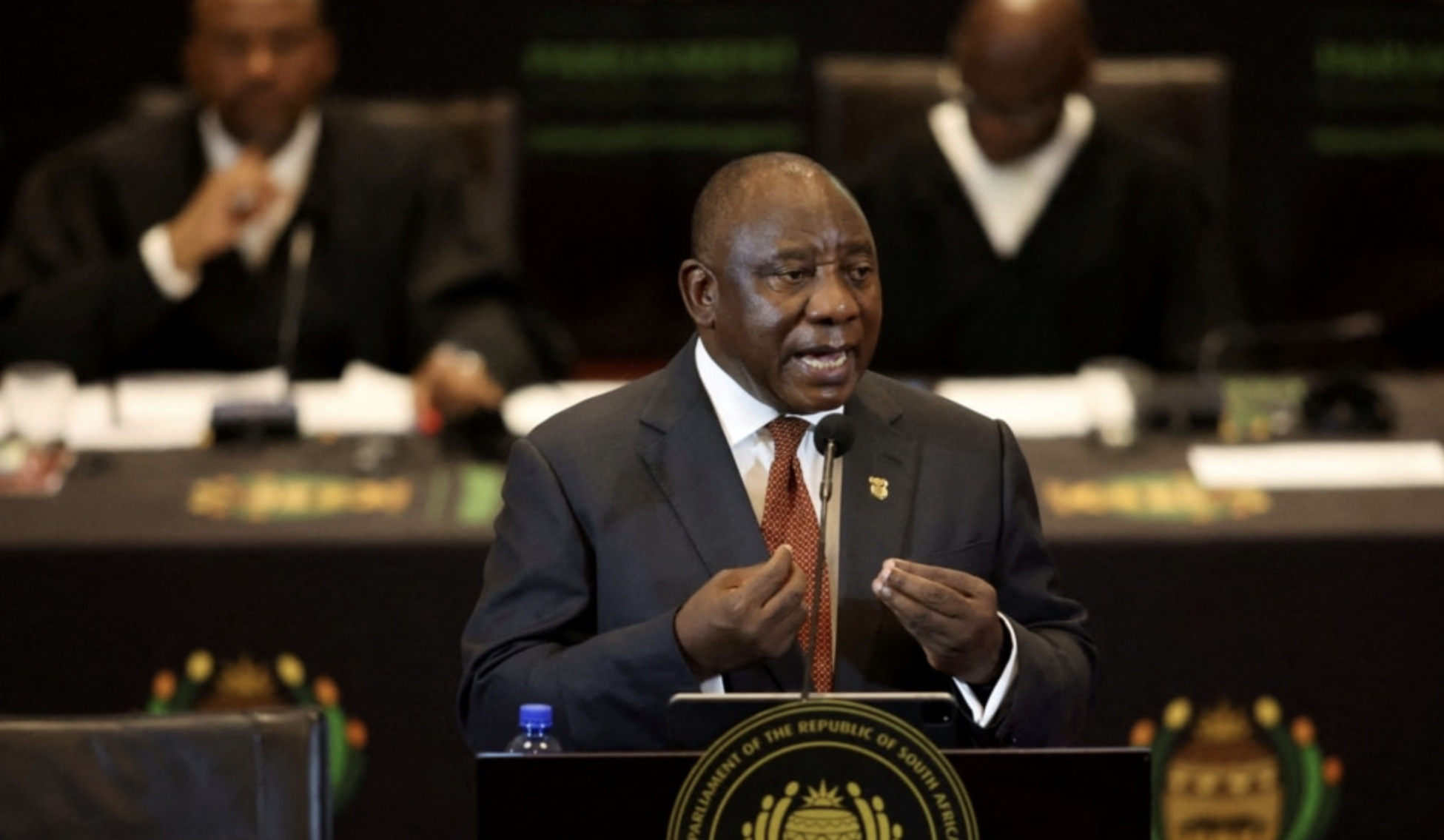
The President of the Republic of South Africa, Matamela Cyril Ramaphosa. Photo: Reuters
In fact, at the moment the ANC does not hide its pro-Russian position, although it formally declares “neutrality”. However, the ANC might lose its majority in the parliament during the next election. In this case, either the centrist-liberal Democratic Alliance, critical of the ANC’s pro-Russian position, will come to power, or the ANC will form a coalition with the left-populist pro-Putin party Economic freedom fighters (EFF), whose leader advocates the formal neutrality rejection and the weapons supply to Russia.
So, the pro-Ukrainian leftists in South Africa have complicated tasks to perform. On the one hand, they need to promote socially-oriented changes not supported by liberal parties. On the other hand, they have to simultaneously oppose left-populist forces that increasingly resemble nationalist-authoritarian parties and are often advocated by neoliberal politicians. For South African pro-Ukrainian leftists (in particular, BRICS from below), it is crucial to use the Ukrainian example for defending the international solidarity principles and fighting against political dependence on Russia, neoliberal nationalist policies, and the domination of both local and foreign oligarchic capital. Patrick Bond ended his speech with a quote from Zwelinzima Vavi, the leading and most influential activist of the trade union movement in South Africa: "Oppose the illegal occupation of Eastern Ukraine by Russian troops in the same way that you fought against American invasions and military operations in the Middle East."
Nostalgia for the USSR as a factor in African politics
Economic cooperation with the Soviet Union and its support for national liberation movements in Africa creates nostalgia for the USSR and an image of Russia as a reliable partner and "friend". Nationalist politicians often use this image to deepen ties with Russian oligarchs, businesses, and mercenaries. For kleptocratic politicians, interaction with Russia is becoming an important ideological task. Right-wing nationalists who promote "anti-globalist" and "Afrocentric" alternatives also rely on it. But in practice, they serve as a fundamental support for authoritarian and populist regimes in the region. Similarly, the Wagner group is an important tool for local military dictatorships that came to power after the coups. Such cases in Burkina Faso and Mali, where last year Russian mercenaries killed and tortured hundreds of civilians in the single village of Moura, were recently confirmed by the UN.
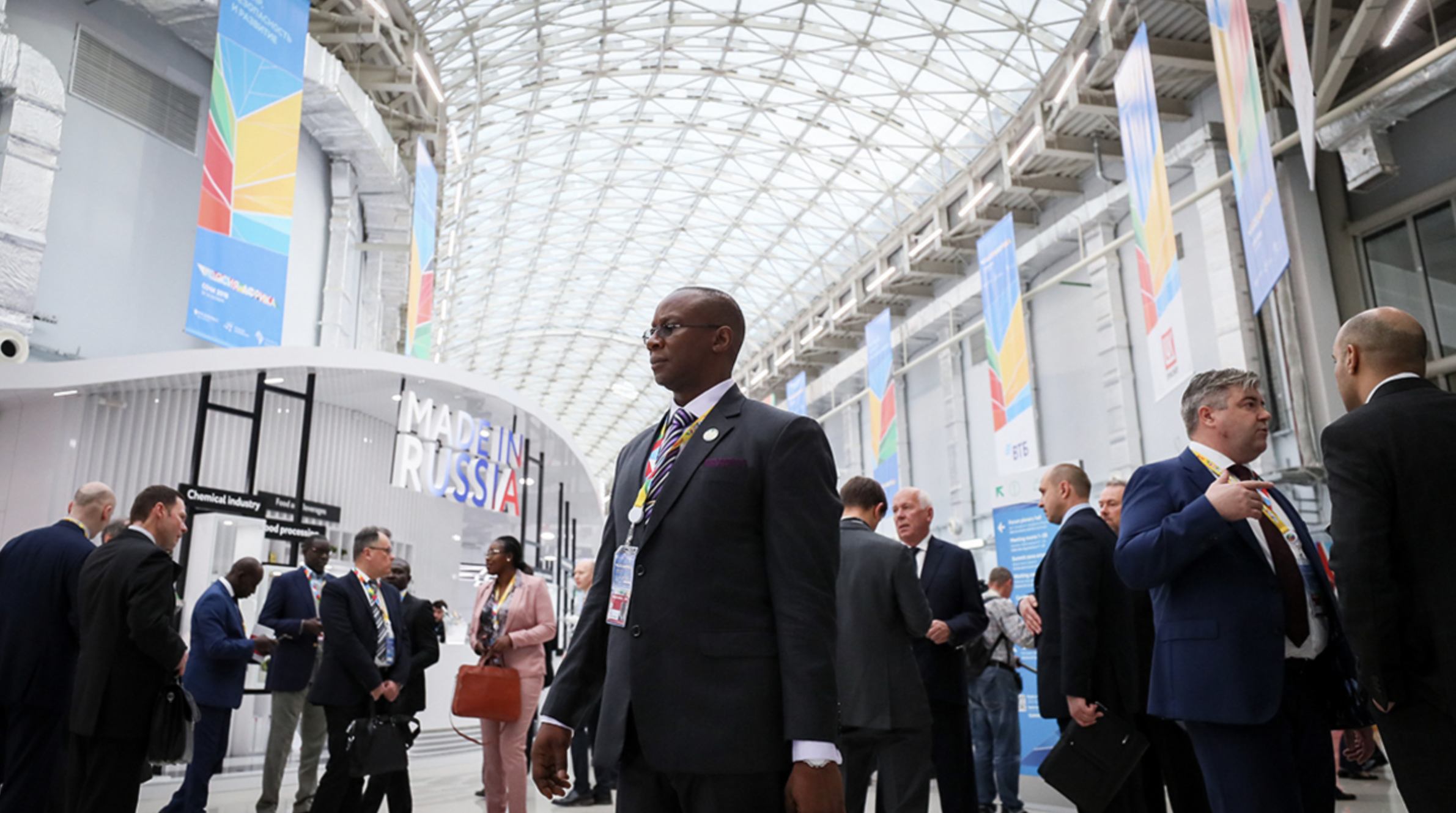
Russia-Africa Economic Forum, 2019. Photo: TASS
Some African left-wing activists argue for the need to move back from the USSR-Russia association and try to emphasize the role of other peoples who inhabited the USSR in helping Africa. Others emphasize that due to the absence of their subjectivity, the empire policy can't be considered the contribution of colonized countries and peoples. One of the discussion participants gave an example: if Portugal used for certain needs resources from its colonies, this does not mean that the colonies bare responsiblity for this decision. On the contrary, the imperialist center disposes of the colonies’ resources at its discretion, without the political participation of the latter. Following this logic, Ukraine and other countries occupied or colonized by the USSR were deprived of the right to decide whether to support African movements or not. In this context, it is crucial to highlight the individual contribution of Ukrainian engineers, doctors, and the diaspora that helped Africa; and counter the myth about the Soviet Union's actions that somehow give the current Russian regime the right to pursue imperialist policies – regardless of which of the two approaches is more valid.
In general, the left-wing ENSU activists' meeting shows that the African continent’s perception as a cradle of pro-Russian views has nothing in common with reality. In this part of the world, they also advocate solidarity with Ukraine and oppose Russian imperialism. This kind of imperialism actively destroys not only Ukraine but also Africa by destabilizing the region through the Wagner mercenaries' actions. This group is known to have actively participated in mass repressions against human rights defenders, trade union and democracy activists, and ordinary citizens, mass shootings and punitive raids, as well as sexual violence, particularly against children. The Russian money, often in connection with this very Wagner group, is used for extractivism. This money helps to take resources out of the region to sponsor the war against Ukraine. Leftist and democratic activists in Africa emphasize the interdependence between the war with Ukraine and imperialism in Africa. They emphasize the need for common universal approaches against all imperialisms and dictatorships.
Footnotes
- ^ The All-Russian Political Party "United Russia" (Russian: Всероссийская политическая партия «Единая Россия) - the largest party in the Russian Federation that supports the policies of Vladimir Putin, who previously served as party leader.
